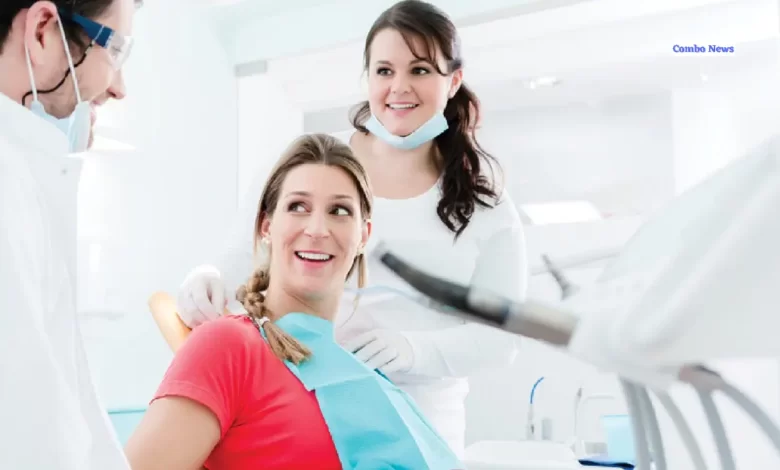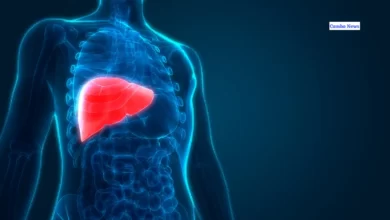
Table of Contents
Pregnancy is a beautiful and transformative journey for women, marked by numerous physical and hormonal changes. While expecting, it’s crucial for mothers to prioritize their health, and this includes dental care. Dental health during pregnancy is often overlooked, but it plays a significant role not only in the well-being of the mother but also in the overall health of the baby.
In this comprehensive guide, we will explore the importance of dental care during pregnancy and provide practical tips for maintaining optimal oral health.

Ensuring proper dental care during pregnancy is not just a matter of a radiant smile; it plays a pivotal role in the overall health of both the expectant mother and her developing baby. The hormonal changes that accompany pregnancy can lead to an increased risk of dental issues such as gum disease and gingivitis. These conditions, if left unchecked, have been linked to adverse pregnancy outcomes, including premature birth and low birth weight.
The importance of maintaining good oral hygiene during this critical period cannot be overstated, as oral health is intricately connected to the well-being of the entire body.
Also Read | 8 Effective Ways to Find Relief from Stiff Shoulders
Pregnancy-induced hormonal fluctuations can exacerbate existing dental problems or pave the way for new ones. The surge in hormones, particularly progesterone, can lead to an exaggerated response to plaque bacteria, resulting in swollen, bleeding gums—a condition known as pregnancy gingivitis. If untreated, gingivitis can progress to more severe forms of gum disease.
Moreover, studies have suggested a potential link between maternal periodontal disease and preterm birth, making it imperative for pregnant women to prioritize regular dental check-ups and cleanings.
Beyond the immediate risks, oral health during pregnancy has broader implications for the long-term well-being of both the mother and child. Poor oral health in expectant mothers has been associated with an increased risk of gestational diabetes and preeclampsia.
Additionally, the bacteria responsible for dental infections can enter the bloodstream and potentially reach the developing fetus, posing a risk of infection for the baby.
Engaging in preventive dental care measures, such as regular brushing, flossing, and dental check-ups, becomes not only an investment in maternal health but also a safeguard for the baby’s development. Dental treatments during pregnancy are generally safe, especially when essential procedures are performed during the second trimester.
Delaying necessary dental care until after childbirth may allow minor issues to escalate into more significant problems, affecting the mother’s health and potentially impacting the baby.
In light of the critical interplay between oral health and pregnancy outcomes, education and awareness are key. Encouraging pregnant women to maintain good oral hygiene practices and seek timely dental care is essential for promoting a healthy pregnancy.
Dental professionals can play a crucial role in educating expectant mothers about the specific oral health challenges associated with pregnancy and providing personalized guidance on maintaining optimal dental hygiene. .
Also Read | Learn How To Become CPR Certified
Dental Care During Pregnancy

1. Understanding the Connection Between Pregnancy and Oral Health:
The hormonal changes during pregnancy, particularly the increased levels of estrogen and progesterone, can affect oral health. Pregnant women are more prone to developing gum diseases such as gingivitis and periodontitis. These conditions, if left untreated, can lead to complications such as premature birth and low birth weight. Hence, maintaining good oral hygiene becomes imperative.
2. Importance of Regular Dental Check-ups:
Regular dental check-ups are crucial during pregnancy. It’s recommended to inform your dentist about the pregnancy during the initial consultation. Routine dental cleanings and check-ups are generally safe during pregnancy and can help identify and address any potential issues early on. Postponing necessary dental treatments may lead to complications, so it’s essential to stay proactive about oral health.
3. Morning Sickness and Dental Care:
Many pregnant women experience morning sickness, which involves vomiting and increased acidity in the mouth. The stomach acids can erode tooth enamel, leading to increased vulnerability to cavities. It’s advisable to rinse the mouth with water or a fluoride mouthwash after vomiting and wait for about 30 minutes before brushing teeth. Brushing immediately after can further damage the softened enamel.
4. Importance of Maintaining Good Oral Hygiene:
Good oral hygiene practices are essential for everyone, but they become even more critical during pregnancy. Pregnant women should brush their teeth at least twice a day using fluoride toothpaste. Flossing is equally important to remove plaque and food particles between teeth. Practicing good oral hygiene helps prevent gum diseases and tooth decay.
5. Dietary Tips for Healthy Teeth:
A well-balanced diet is crucial for both the mother’s and the baby’s health. During pregnancy, it’s essential to consume foods rich in calcium, phosphorus, and vitamin D for the development of the baby’s teeth and bones. Dairy products, leafy greens, and fortified cereals are excellent sources of these nutrients. Avoid excessive consumption of sugary snacks and beverages as they can contribute to cavities.
Also Read | What is a medical device? And it Types
6. Safe Dental Procedures During Pregnancy:
While routine dental check-ups are generally safe, elective procedures such as teeth whitening and cosmetic treatments are best postponed until after delivery. Non-emergency dental treatments should ideally be scheduled for the second trimester when the risk of complications is lower. X-rays should be avoided during pregnancy unless absolutely necessary, and in such cases, the dentist will take necessary precautions to minimize exposure.
7. Dealing with Pregnancy Gingivitis:
Pregnancy gingivitis is a common condition characterized by red, swollen, and bleeding gums. Hormonal changes make the gums more sensitive to the bacteria in plaque, leading to inflammation. Regular dental cleanings, proper oral hygiene practices, and using an antimicrobial mouthwash can help manage and prevent pregnancy gingivitis.
8. Addressing Dental Concerns:
If a dental issue arises during pregnancy, it’s crucial to address it promptly. Ignoring problems such as cavities or infections can lead to more significant complications. Local anesthesia and certain antibiotics are generally considered safe during pregnancy when prescribed by a dentist who is aware of the pregnancy.
9. The Impact of Oral Health on Pregnancy Outcomes:
Research suggests a potential link between periodontal disease and adverse pregnancy outcomes, such as premature birth and low birth weight. Maintaining optimal oral health during pregnancy not only ensures the well-being of the mother but may also contribute to a healthier pregnancy and birth.
10. Postpartum Dental Care:
After giving birth, it’s essential to continue prioritizing oral health. Hormonal changes postpartum can still affect oral health, and the stresses of caring for a newborn can lead to lapses in oral hygiene routines. Schedule a follow-up dental appointment to address any issues that may have arisen during pregnancy and to ensure ongoing oral health.
Also Read | 10 Best Digital Healthcare Companies In USA
Dental Care During Pregnancy – Key Facts
1. Hormonal changes during pregnancy can increase the risk of dental issues.
2. Pregnancy gingivitis, characterized by swollen and bleeding gums, is a common concern.
3. Untreated gum disease has been linked to adverse pregnancy outcomes such as premature birth.
4. Poor oral health in expectant mothers is associated with a higher risk of gestational diabetes and preeclampsia.
5. Bacteria from dental infections can potentially reach the fetus, posing a risk of infection for the baby.
6. Preventive dental care measures, including regular check-ups, are crucial during pregnancy.
7. Dental treatments during the second trimester are generally considered safe.
8. Delaying necessary dental care may allow minor issues to escalate, impacting maternal and fetal health.
9. Education and awareness play a key role in promoting good oral hygiene practices during pregnancy.
10. Prioritizing dental care is an investment in the overall health and well-being of both mother and child.
Dental Care During Pregnancy- Conclusion
Dental care during pregnancy is a critical aspect of prenatal health that should not be overlooked. By understanding the unique challenges and taking proactive measures, expectant mothers can maintain optimal oral health, contributing to a healthy pregnancy and a beautiful, smiling baby.
Regular dental check-ups, good oral hygiene practices, and a well-balanced diet are key components of a comprehensive approach to dental care during pregnancy. Remember, a healthy smile is a reflection of a healthy pregnancy.
FAQs
How does water help in dental care?
Consistently drinking enough water can enhance both oral hygiene and general wellness.
Also Read | Here Are 7 Must-Have Immunity Boosters for Pregnant Women








